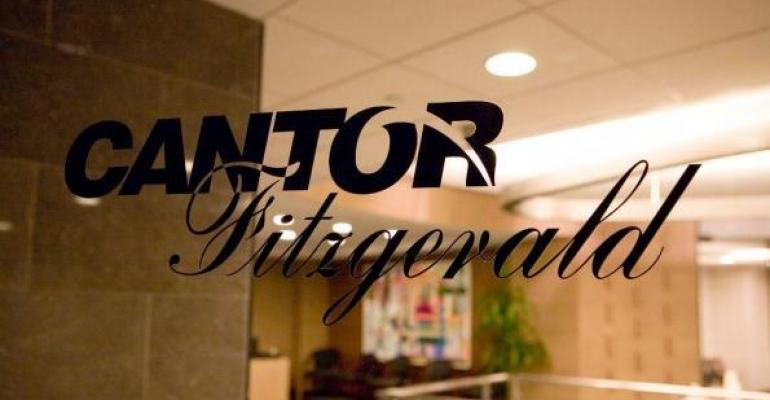NEW YORK, Oct 3 (Reuters) - An affiliate of financial services firm Cantor Fitzgerald has agreed to pay $22.5 million to resolve investigations into its past involvement with illegal gambling and money laundering schemes, U.S. authorities said on Monday.
Federal prosecutors in Brooklyn said CG Technology LP had agreed to pay $16.5 million and enter into a non-prosecution agreement, three years after a former executive pleaded guilty to conspiring to participate in an illegal gambling business.
The U.S. Treasury Department's Financial Crimes Enforcement Network separately announced a $12 million civil penalty against CG Technology, $6 million of which will be covered by the company's criminal settlement.
CG Technology declined to comment.
Prosecutors said that from 2009 to 2013, CG Technology, then known as Cantor Gaming, aided and abetted operation of an illegal gambling business and money laundering while growing into one of the largest U.S. race and sports book operators.
"Unacceptably, this growth came at the expense of compliance with the law, and as a result Cantor Gaming became a place where at least two large-scale illegal bookmakers could launder their ill-gotten proceeds," Brooklyn U.S. Attorney Robert Capers said.
Prosecutors said Cantor Gaming offered higher betting limits than others in the area, seeking to attract and retain bettors who would frequently place large wagers on sports events.
It also gave important bettors preferential treatment, including direct access to Michael Colbert, the company's director of risk management, prosecutors said.
To accommodate some bettors, Colbert and his staff facilitated illegal conduct, including allowing the use of "runners" to place bets for third-parties, prosecutors said.
Colbert and his staff also processed large cash deposits, withdrawals and third-party wire transfers while knowing the funds represented the illegal proceeds, prosecutors said.
Prosecutors said CG Technology admitted to violating federal laws, is cooperating with authorities and has taken steps to reform business and compliance operations.
Colbert pleaded guilty in August 2013 to conspiracy to conduct an illegal gambling business. He faces up to five years in prison when he is sentenced. A lawyer for Colbert did not respond to a request for comment.
Cantor Gaming in 2014 agreed to pay $5.5 million to resolve related allegations by the Nevada Gaming Control Board.
Chief Executive Officer Lee Amaitis resigned in August after the company agreed to pay $1.5 million to resolve separate claims by the Nevada regulator over problems with a computerized system that resulted in patrons being incorrectly paid. (Reporting by Nate Raymond in New York; Editing by Chris Reese and David Gregorio)






